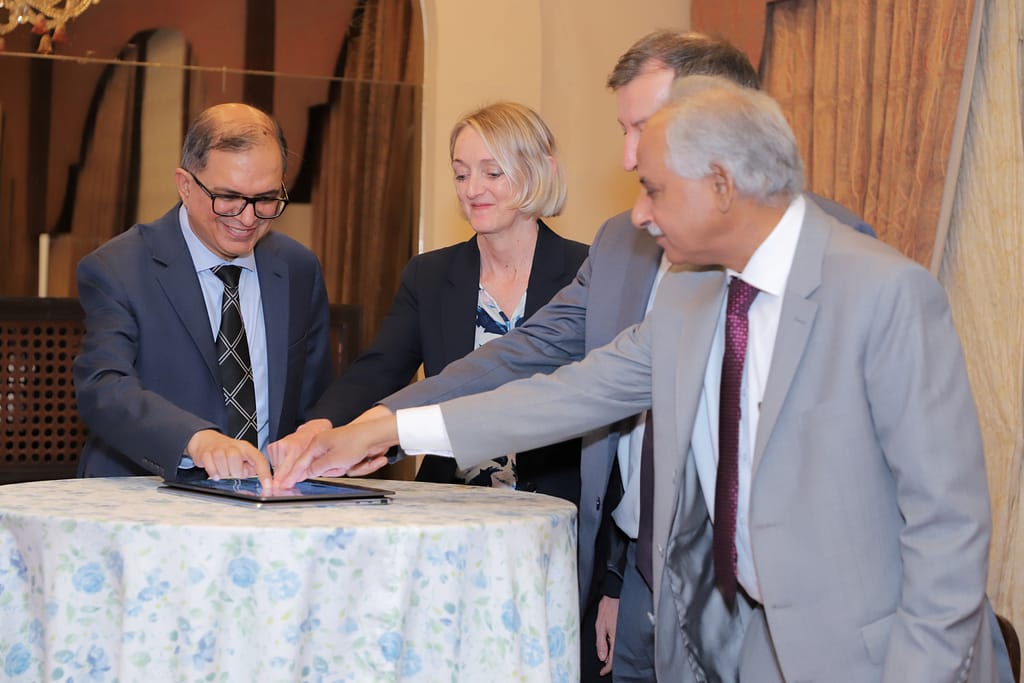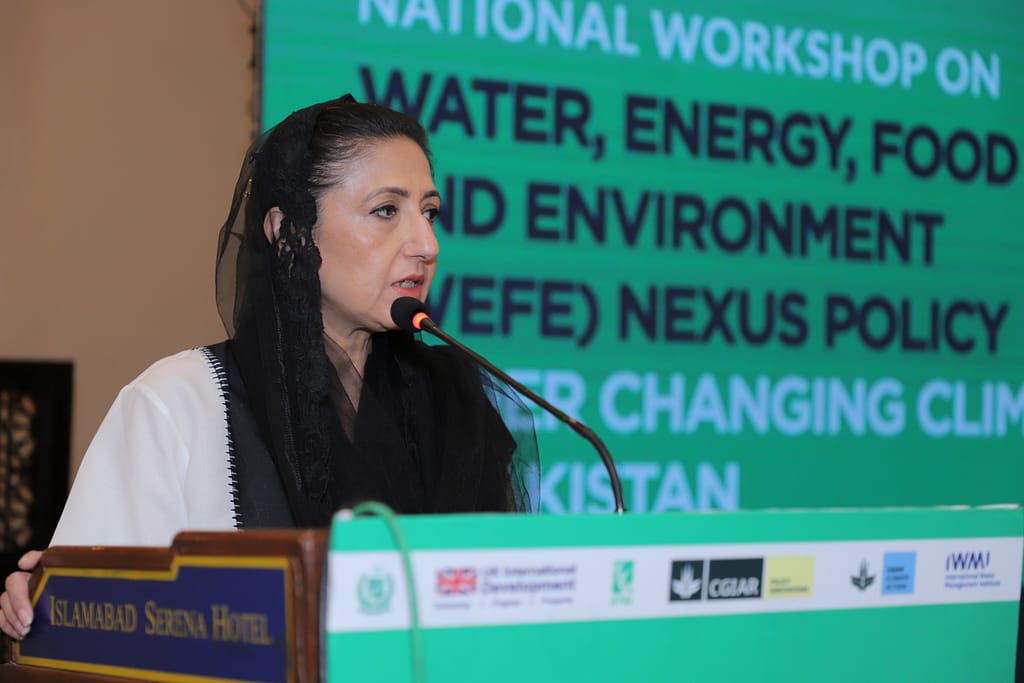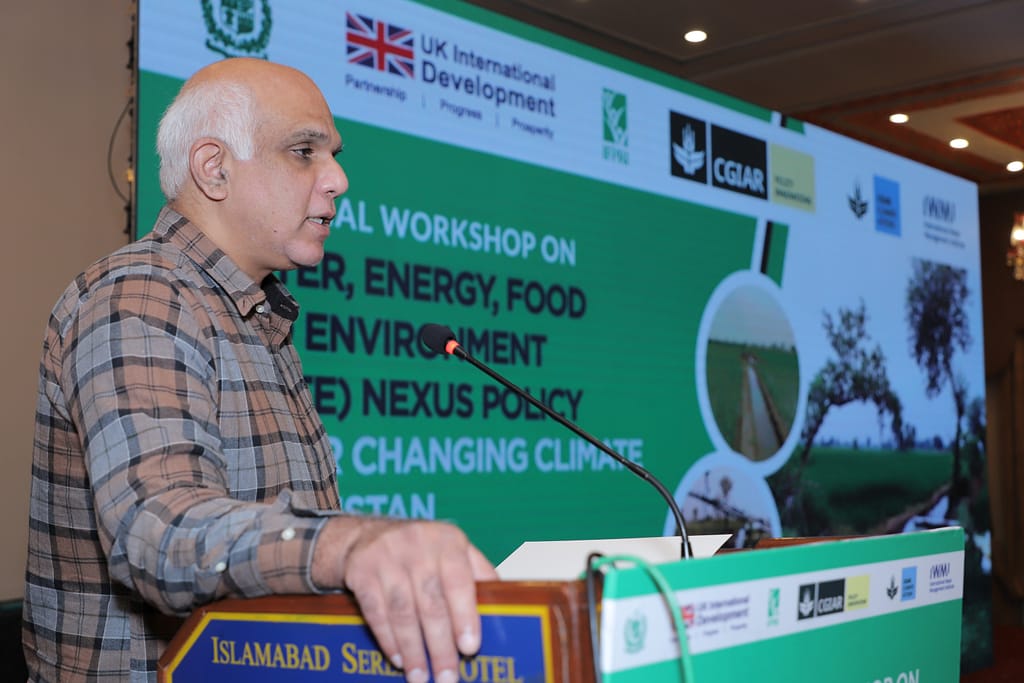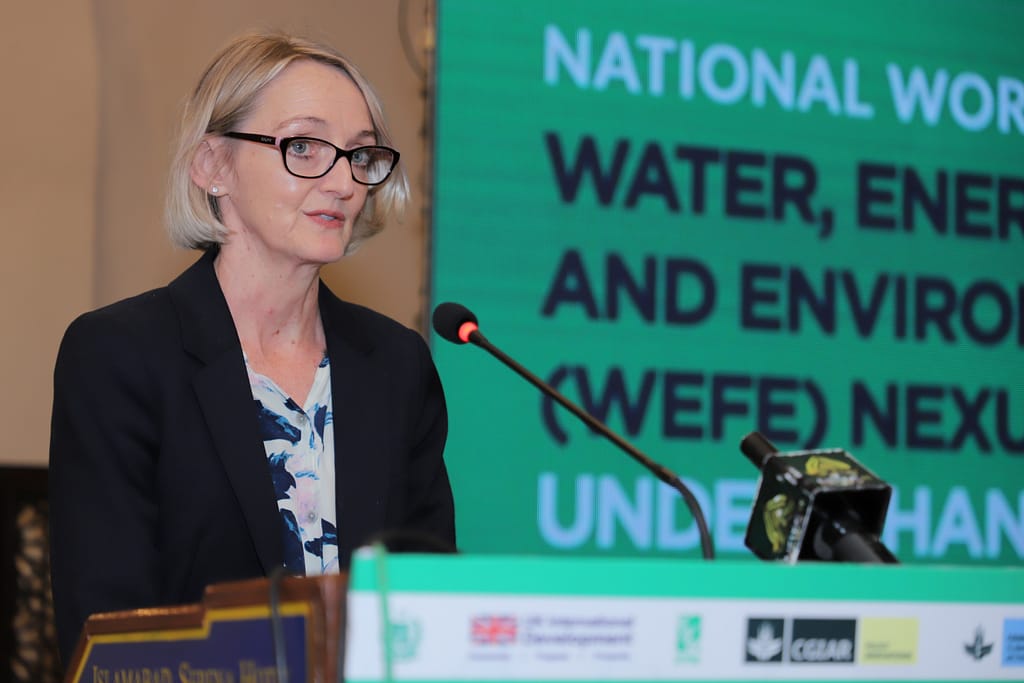
The International Water Management Institute (IWMI) introduced three new digital platforms in Pakistan to help the country better manage its water, food and energy resources, as it faces serious climate challenges. The platforms — the Water Productivity Atlas, the Water Body Inventory of Pakistan and the Hydro-economic Model for the Indus Basin — were presented at a national workshop in Islamabad on June 18, 2025, during the launch of two of CGIAR’s Science Programs on Policy Innovations and on Climate Action. The initiative reflects IWMI and CGIAR’s continued commitment to shaping integrated, climate-smart policies in Pakistan and around the world.
The Water Productivity Atlas is a digital decision support tool that provides district-level insights into the efficiency of agricultural water use across Pakistan, aiding policymakers in optimizing water productivity. The Water Bodies Inventory of Pakistan serves as a comprehensive national tool to map surface water bodies to guide investment decisions in water infrastructure. Meanwhile, the Hydro-economic Model for the Indus Basin is an analytical system designed to assess trade-offs in water use, cropping choices and economic outcomes within the agriculture and water-energy-food-environment (WEFE) nexus under changing climate conditions.

The workshop focused on the WEFE Nexus and how Pakistan can use this approach to manage the risks of climate change. The platforms introduced at the event will help the government develop stronger policies for climate resilience and agricultural planning.
The event was supported by the UK’s Foreign, Commonwealth and Development Office (FCDO) and brought together federal and provincial officials, engineers, researchers and members of civil society, highlighting strong cross-sectoral participation.
Shezra Mansab Ali Khan Kharal, Pakistan’s Minister of State for the Ministry of Climate Change and Environmental Coordination, said this initiative would assist in more effective planning by using real data. She highlighted that the tools would also make decision-making more open and help balance the needs of different sectors.

As water issues between Pakistan and India have increased the pressure on Pakistan’s water system, better planning is needed to use water more efficiently and support farming. Syed Ali Murtaza, Federal Secretary for the Ministry of Water Resources said. “These tools will help the government make smart decisions about how to use water. They will also improve farming practices and guide better water distribution,” he added.
Mark Smith, director general at IWMI, said that science, policy and government agencies need to work together to build climate resilience. “This event is just the beginning for building a more informed, connected and responsive policy environment,” he said.
“Pakistan must stop treating water, food, energy and the environment as separate problems. There is an urgent need to break sectoral silos and embrace a systems approach to resource governance. These issues are connected. We must deal with them as a system,” said Mohsin Hafeez, director of water, food and ecosystems at IWMI.

Anna Ballance, senior climate lead at FCDO, shared that the UK government is collaborating with Pakistan to create a climate-resilient community. “Our flagship program in Pakistan is the Water Resource Accountability in Pakistan (WRAP). It’s essential to develop a coherent approach that integrates water, food and ecosystems. We strongly encourage ministries to work together, promote widespread usage and build capacity,” she added.
Participating stakeholders — including engineers, government officials and climate experts from Punjab, Sindh, Balochistan and Khyber Pakhtunkhwa — also emphasized the urgent need for integrated planning and data-driven solutions. They expressed strong commitment to using these digital tools to support local communities, enhance resource efficiency and build resilience against climate shocks.
The workshop concluded with a shared resolve to strengthen collaboration across provinces and sectors, ensuring that evidence-based decision-making becomes central to Pakistan’s climate and water governance agenda.
















